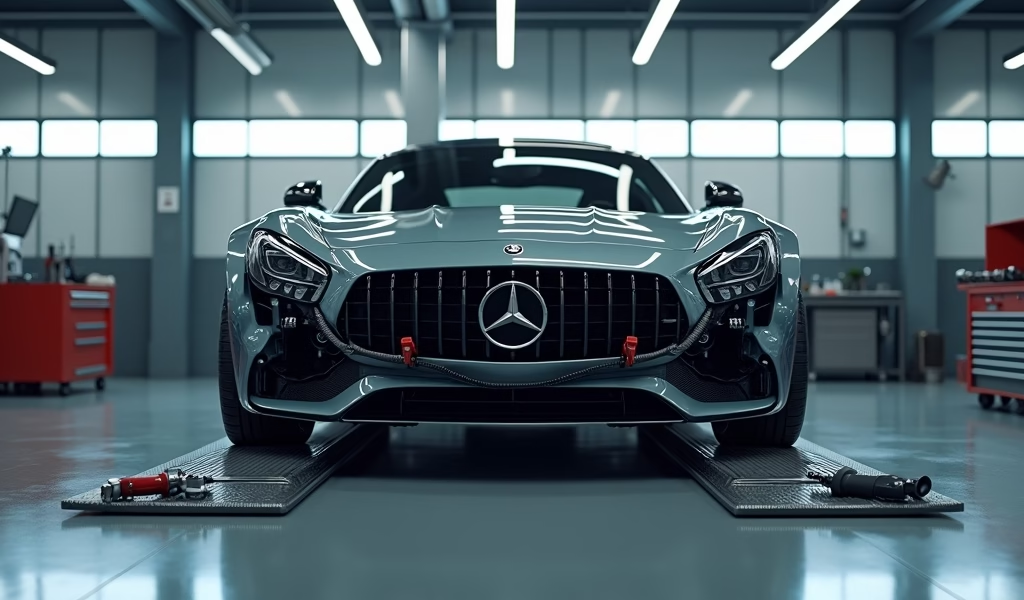Overview
This article explains how no-win-no-fee arrangements work for car accident claims, where attorneys only collect payment (typically 25-40% of settlements) if they win your case. It provides guidance on finding qualified attorneys, maximizing compensation, avoiding common pitfalls like missing deadlines or giving recorded statements to insurance companies, and outlines the step-by-step claim process from initial consultation through settlement.
Table of Contents
- Understanding No Win No Fee Claims for Car Accidents
- How No Win No Fee Arrangements Work
- Benefits of Choosing a No Win No Fee Car Accident Attorney
- Finding the Right No Win No Fee Attorney
- The No Win No Fee Claim Process: Step by Step
- Maximizing Your Compensation in No Win No Fee Cases
- Common Pitfalls to Avoid in No Win No Fee Claims
- Conclusion
- Frequently Asked Questions
Understanding No Win No Fee Claims for Car Accidents
When life throws you a curveball in the form of a car accident, the aftermath can feel like trying to drive with four flat tires. Medical bills pile up faster than dirty laundry, you might be missing work, and your trusty vehicle sits damaged in the driveway or worse—at the scrap yard. It’s enough stress without adding legal fees to the mix.
That’s where no win no fee car accident claims come to the rescue. This arrangement, also known as a contingency fee agreement in legal speak, means exactly what it says on the tin: if your case doesn’t win, you don’t pay attorney fees. Simple as changing your wiper blades (well, almost).
I’ve seen countless folks walk into my shop worried about their banged-up vehicles, but even more concerned about how they’ll afford to fight for what they deserve. The beauty of no win no fee arrangements is they level the playing field. Just like how the right tools make a complex repair job manageable, these agreements give everyday people access to legal horsepower they might otherwise never afford.
Think of it as roadside assistance for your legal journey—help when you need it most, without the upfront cost. The attorney only collects when they successfully navigate your claim to a settlement destination. Their payment comes as a percentage of what they recover for you, typically between 25% and 40% depending on case complexity and your location.
Now, before we pop the hood and examine how these arrangements work in detail, let me be clear: no win no fee doesn’t mean absolutely free. There might still be some costs involved, which we’ll cover later, like a mechanic explaining that while the labor is covered under warranty, you might still need to pay for certain parts. But overall, this approach removes the biggest financial barrier to seeking justice after a car accident.
How No Win No Fee Arrangements Work

Let me break down how these arrangements function, just like I’d explain how your transmission works. First, when you consult with a qualified auto crash attorney, they’ll assess your case like I’d inspect a vehicle—looking for strengths, weaknesses, and potential value.
If they believe your case has merit and a good chance of success, they’ll offer to represent you on a contingency basis. You’ll sign an agreement that outlines the percentage they’ll take from any settlement or court award. This percentage typically ranges from 25% for straightforward cases that settle quickly to 40% for complex cases that go to trial.
Here’s what makes this system tick: the attorney fronts all the costs of building your case. They’re essentially investing in you. These expenses might include:
- Filing fees (like paperwork at the courthouse)
- Expert witness fees (think accident reconstructionists)
- Medical record retrieval costs
- Deposition expenses
- Investigation costs
Just as I might need to order specialized parts before fixing your vehicle, your attorney handles these upfront costs. If you win, these expenses are typically recovered from your settlement, along with their percentage fee. If you lose, most attorneys (but not all, so always check) will absorb these costs.
The beauty of this system lies in its alignment of interests. Your attorney is motivated to maximize your recovery because their payment directly depends on it. It’s like paying a mechanic based on how well your car runs after repairs, not just for the time spent working on it.
Let’s say you receive a $100,000 settlement with a 33% contingency fee. Your attorney would receive $33,000, and you’d get $67,000 (minus any case expenses). While that might seem like a big chunk, research shows that accident victims with attorneys typically receive higher settlements even after fees than those without legal representation.
Remember though, just like not all mechanics are equally skilled, not all no win no fee attorneys offer the same terms. Some might charge different percentages based on case progression, others might handle expenses differently. Always read the fine print before signing on the dotted line.
Benefits of Choosing a No Win No Fee Car Accident Attorney
Choosing a no win no fee arrangement for your car accident claim comes with advantages that make as much sense as regular oil changes for your vehicle. Let me walk you through the key benefits that make this option so popular among accident victims.
First and foremost, it removes financial barriers. You don’t need a fat wallet to access quality legal representation. Much like how modern vehicles have made transportation accessible to more people, contingency fees have democratized the legal system. Even if you’re temporarily out of work due to injuries, you can still pursue justice.
There’s also built-in quality control. Think about it—attorneys only take cases they believe they can win. If multiple lawyers are willing to take your case on contingency, it’s a good sign you have a solid claim, similar to when several mechanics agree on a diagnosis. If they’re hesitant, it might indicate problems with liability or damages that could make recovery difficult.
The risk-sharing aspect is another huge advantage. Your attorney shoulders the financial risk of pursuing your claim. If your case doesn’t succeed, you won’t be stuck with a bill for legal services on top of your accident-related expenses. It’s like having a repair guarantee—if the fix doesn’t work, you don’t pay.
Then there’s the motivation factor. Your attorney’s payday is directly tied to your success. This creates a powerful incentive for them to work diligently on your behalf. The better your outcome, the better theirs. It’s similar to performance-based mechanics who earn bonuses based on customer satisfaction—their success depends on yours.
You’ll also benefit from expert guidance through complex territory. Car accident law can be as complicated as a modern engine management system. Having a professional navigate these complexities for you without upfront costs is invaluable. They know the rules of the road when it comes to dealing with insurance companies, filing deadlines, and legal procedures.
Lastly, these arrangements provide peace of mind. Knowing you won’t face attorney bills unless your case succeeds allows you to focus on what’s most important—your recovery. Just as you can drive confidently knowing your vehicle has been properly maintained, you can proceed with your claim knowing the financial risks are minimized.
Finding the Right No Win No Fee Attorney
Finding the right attorney for your car accident claim is a lot like finding a trustworthy mechanic for your prized vehicle. You want someone who specializes in your particular problem, has a track record of success, and communicates clearly. Let me share some insider tips on selecting the perfect legal mechanic for your case.
Start by seeking specialists, not generalists. A lawyer who dabbles in everything from divorces to real estate might not have the specific expertise needed for complex car accident cases. Look for top-rated car accident lawyers who handle these claims day in and day out. They’ll know the intricacies of insurance policies, injury valuation, and liability laws that apply to your situation.
Check their experience under the hood. Don’t be shy about asking potential attorneys how many car accident cases they’ve handled and their success rate. An experienced attorney should be able to share examples of similar cases (while respecting client confidentiality) and explain how they navigated challenges. Just as you’d want a mechanic who’s fixed hundreds of transmissions rather than just a few, you want an attorney with extensive relevant experience.
Verify their resources and team. Major accident cases might require accident reconstruction experts, medical specialists, investigators, and support staff. Ensure your potential attorney has access to these resources. A solo practitioner might be excellent but may lack the bandwidth for complex cases, similar to how a one-person garage might struggle with major rebuilds.
Consider communication style and accessibility. You need an attorney who explains things clearly without drowning you in legal jargon. During your initial consultation, notice how they answer your questions. Do they rush or take time to ensure you understand? Can you easily reach them with questions? The best attorneys, like the best mechanics, make complex subjects understandable and keep you informed throughout the process.
Evaluate their reputation in the community. Check online reviews, but also ask around. Local bar associations can confirm an attorney is in good standing. Personal recommendations from friends or family can be golden. A mechanic might advertise well but word-of-mouth reputation tells the true story—the same applies to attorneys.
Finally, trust your gut feeling. The attorney-client relationship can last months or even years. You should feel comfortable with and confident in your choice. If something feels off during your consultation, it might be worth meeting with someone else. Just as you wouldn’t leave your car with a mechanic you don’t trust, don’t entrust your case to an attorney who doesn’t inspire confidence.
The No Win No Fee Claim Process: Step by Step

Let me walk you through the typical journey of a no win no fee car accident claim. Think of it like the diagnostic process I use in my shop—systematic, thorough, and designed to get you the best outcome possible.
It all starts with the initial consultation. This is typically free and serves as your opportunity to share your accident details and injuries. The attorney will ask questions about how the accident happened, who might be at fault, what injuries you sustained, and what medical treatment you’ve received. They’re gathering information much like I collect data from your vehicle’s computer systems before making any repair decisions.
If the attorney believes your case has merit, you’ll sign a contingency fee agreement. This document outlines the attorney’s percentage fee, how case expenses will be handled, and other important terms. Read this carefully, just as you’d review a repair estimate before authorizing work on your vehicle. Don’t hesitate to ask questions if anything is unclear.
Next comes the investigation phase. Your attorney will collect evidence including police reports, witness statements, medical records, employment records (for lost wage claims), and photos of the accident scene and vehicle damage. They might hire experts like accident reconstructionists or medical specialists. This is similar to how I might perform advanced diagnostics or call in specialists for complex engine issues.
Once your medical treatment is complete or your condition has stabilized, your attorney will assemble your claim package. This includes documentation of all damages: medical expenses, lost wages, property damage, pain and suffering, and any long-term impairments. Like preparing a comprehensive repair plan, this step establishes what full compensation should look like.
Your attorney will then submit a demand letter to the at-fault party’s insurance company. This formally presents your claim and proposed settlement amount. The insurance company will investigate and respond, usually with a counteroffer. This begins the negotiation phase, which is like haggling over repair costs with an insurance adjuster—except your attorney handles this back-and-forth for you.
Most claims settle during negotiations, but if a fair settlement can’t be reached, your attorney will file a lawsuit. This doesn’t mean you’ll definitely go to trial—many cases settle during the litigation process as more evidence comes to light. Filing suit is sometimes necessary to show the insurance company you’re serious, similar to how getting a second opinion sometimes makes the first mechanic suddenly more reasonable.
If your case does go to trial, your attorney will present evidence, question witnesses, and argue your case before a judge or jury. This is relatively rare—about less than 5% of personal injury cases actually reach trial. Most insurance companies prefer to avoid the uncertainty and expense of trials.
Finally, when your claim resolves through settlement or court award, your attorney will receive the funds, deduct their percentage fee and case expenses, and disburse the remainder to you. They’ll also help resolve any outstanding medical liens. Think of it as the final paperwork after a major repair—handling the warranty documentation and ensuring everything is properly settled.
Throughout this process, a good car crash attorney keeps you informed and involved in decision-making, just as a good mechanic consults you before making any major repair decisions.
Maximizing Your Compensation in No Win No Fee Cases
Just as I can help you get the most miles out of your vehicle with proper maintenance, I can share some insider tips on maximizing your compensation in a no win no fee case. These strategies can make a significant difference in your final settlement amount.
Seek immediate medical attention after your accident. This isn’t just about your health (though that’s priority number one)—it’s about documenting your injuries from day one. Gaps in treatment or delayed care give insurance companies ammunition to argue your injuries weren’t serious or weren’t caused by the accident. It’s like ignoring that check engine light—what starts as a small problem can become much worse if neglected.
Document everything meticulously. Keep a daily journal of pain levels, limitations, medical appointments, and how your injuries affect your daily life. Take photos of visible injuries as they heal. Save receipts for every expense related to your accident, from prescription medications to hiring help for tasks you can’t perform. This detailed documentation is like having a complete service history for your vehicle—it proves what happened and when.
Follow your doctor’s orders exactly. Attend all appointments, complete prescribed therapy, take medications as directed, and follow activity restrictions. Not only does this help you heal faster, but it also demonstrates you’re taking your recovery seriously. Insurance companies look for any sign you’re exaggerating your injuries, and skipped appointments or ignored medical advice gives them exactly that. Think of it like following the manufacturer’s maintenance schedule—it’s the proven path to best results.
Be cautious with social media. Insurance adjusters regularly check accident victims’ social media accounts for evidence that contradicts their injury claims. That fishing trip or dance floor photo might seem innocent to you, but it can be devastating to your case. Consider taking a social media break during your claim, or at minimum, set accounts to private and be extremely careful about what you post. It’s similar to how a small fluid leak might seem minor but can indicate a much bigger problem brewing.
Don’t rush to settle. Insurance companies often make quick settlement offers hoping you’ll accept before understanding the full extent of your injuries and damages. Some injuries, particularly those involving the spine or traumatic brain injuries, may not reveal their full impact for months. A premature settlement is like putting a bandage on a problem that needs stitches—it might look fixed, but you’ll regret it later.
Consider all damages, not just the obvious ones. Beyond medical bills and lost wages, you may be entitled to compensation for future medical treatment, diminished earning capacity, modification to your home or vehicle, pain and suffering, emotional distress, and loss of enjoyment of life. A good attorney, like a thorough mechanic, checks everything—not just the problem you initially came in for.
Be honest but strategic with insurance adjusters. If you speak with the other party’s insurance company (ideally, your attorney will handle this), be truthful but don’t volunteer information, minimize your injuries, or accept blame. Insurance adjusters are trained to elicit statements that can harm your claim. This is similar to how I always advise against DIY fixes for complex engine problems—without expertise, you might inadvertently cause more damage.
Common Pitfalls to Avoid in No Win No Fee Claims
Even the smoothest roads have potholes, and the path to fair compensation after a car accident is certainly no exception. Let me point out some common hazards so you can avoid the claims equivalent of blowing a tire or damaging your suspension.
One major mistake is waiting too long to consult an attorney. Every state has a statute of limitations—a legal deadline for filing claims. Miss this deadline, and your claim vanishes faster than motor oil on a hot engine block. Beyond these hard deadlines, evidence disappears, witnesses’ memories fade, and accident scenes change. The sooner you get legal advice, the better your chances of preserving crucial evidence.
Another pitfall is providing recorded statements to insurance companies without legal guidance. Insurance adjusters may sound friendly, but their job is to minimize payouts. They’re trained to ask questions that can trip you up or be used against you later. This is like letting someone else’s mechanic diagnose your vehicle problems—their interests may not align with yours.
Many claimants underestimate the value of their case and accept lowball offers. Without legal expertise, it’s hard to know what your claim is truly worth. Medical bills and lost wages are just the starting point. Future expenses, pain and suffering, and other damages significantly increase claim value. Accepting the first offer is like trading in your vehicle without researching its market value—you’ll likely leave money on the table.
Some folks fail to follow medical advice or maintain treatment consistency. Besides potentially worsening your injuries, sporadic medical treatment creates records that suggest your injuries aren’t serious or continuous. Insurance companies pounce on treatment gaps like I’d spot a rust problem during an inspection—it’s a weak point they’ll exploit.
Oversharing on social media during your claim is increasingly common and consistently damaging. That photo of you smiling at a family gathering or working in your garden can be twisted to suggest you’re not really injured. Insurance investigators routinely check social platforms for evidence to contradict your claims. It’s like unknowingly driving with your check engine light visible to everyone around you—information that can be used against you.
I’ve also seen clients attempt to handle property damage and injury claims simultaneously without legal help. This often results in signing releases that inadvertently waive rights to injury compensation. The insurance company might fix your car quickly while slipping in language that limits your right to seek compensation for physical injuries. It’s like focusing on a minor cosmetic scratch while ignoring strange engine noises—addressing the visible problem while missing the serious one.
Finally, some people choose attorneys based solely on flashy advertisements rather than experience and results. The lawyer with the biggest billboard might not be the best fit for your specific case. Choosing legal representation deserves the same careful consideration as selecting who works on your precious vehicle—credentials, experience, and track record matter more than marketing volume.
Conclusion
Navigating the aftermath of a car accident can feel like driving through unfamiliar territory without GPS—confusing, stressful, and full of potential wrong turns. No win no fee arrangements offer a reliable roadmap for those seeking justice without upfront financial strain.
We’ve covered the mechanics of how these agreements work, from initial consultation through settlement distribution. We’ve explored how to choose the right attorney, maximize your compensation, and avoid common pitfalls that could derail your claim. Much like proper vehicle maintenance prevents major breakdowns, understanding these aspects of the claims process helps prevent costly mistakes.
Remember that while no win no fee arrangements remove significant financial barriers, they’re not all created equal. Taking time to understand the terms, asking the right questions, and choosing an experienced attorney can make the difference between a smooth journey and a bumpy ride.
If you’re dealing with the aftermath of a car accident, consider consulting with a qualified attorney who offers contingency fee arrangements. Most provide free initial consultations, giving you the opportunity to understand your options without financial commitment—like getting that diagnostic check before deciding on repairs.
Just as I wouldn’t let a friend drive away with unsafe brakes, I can’t conclude without emphasizing that time is of the essence in accident claims. Evidence disappears, memories fade, and legal deadlines approach. Taking prompt action gives you the best chance at fair compensation for your injuries and losses.
The road to recovery after an accident has enough challenges—don’t let concerns about legal costs become another obstacle. With a no win no fee arrangement, you can focus on healing while a professional handles the complex work of securing the compensation you deserve.
Frequently Asked Questions
What exactly does “no win no fee” mean in car accident claims?
No win no fee means you only pay your attorney if they successfully recover compensation for your car accident case. If your claim doesn’t result in a settlement or court award, you typically won’t owe attorney fees for their services.
How much does a no win no fee lawyer take from my settlement?
Most no win no fee attorneys take between 25% and 40% of your settlement amount, with the average being around 33%. This percentage may increase if your case proceeds to trial due to the additional work involved.
Will I have to pay anything upfront with a no win no fee arrangement?
Most no win no fee arrangements don’t require upfront attorney fees, but you might need to cover certain case expenses like filing fees or expert witness costs. Many attorneys advance these costs and deduct them from your settlement later, but policies vary by firm.
How long do no win no fee car accident claims usually take?
The timeline varies greatly depending on case complexity, injury severity, insurance company cooperation, and whether your case settles or goes to trial. Simple cases might resolve in a few months, while complex cases can take one to three years.
What happens if I lose my case with a no win no fee lawyer?
If you lose your case, you generally won’t owe attorney fees for their time and services. However, depending on your agreement, you might still be responsible for case expenses like court filing fees and expert witness costs.

